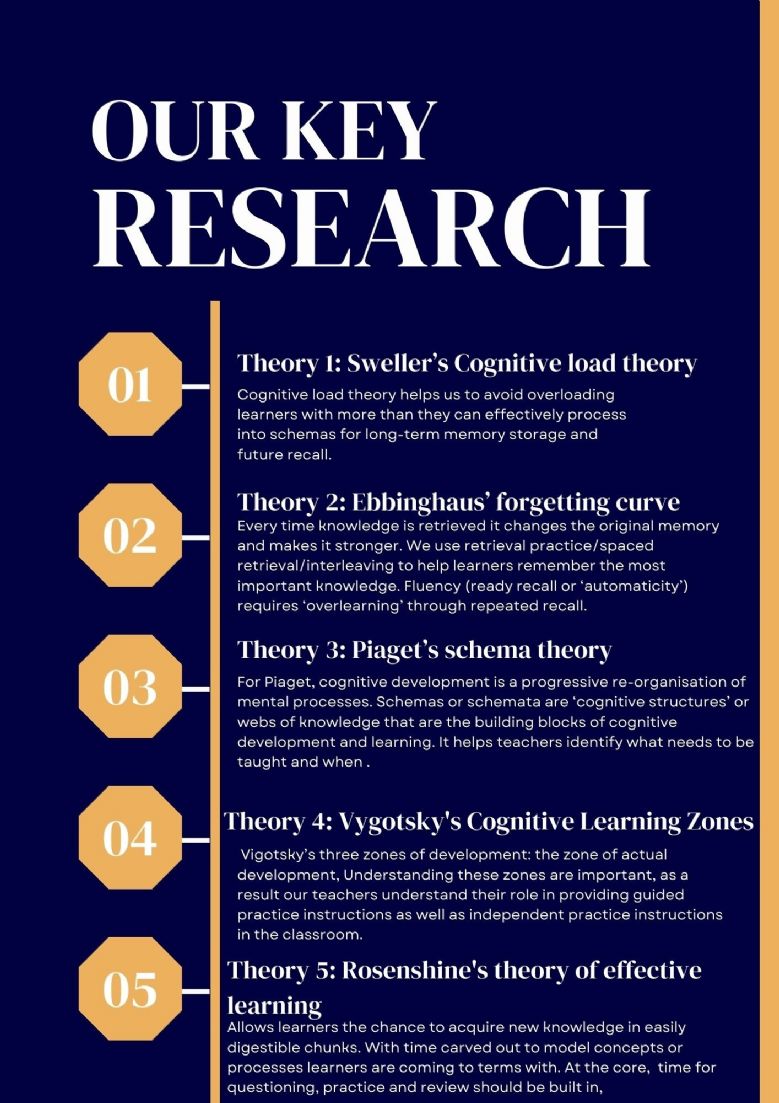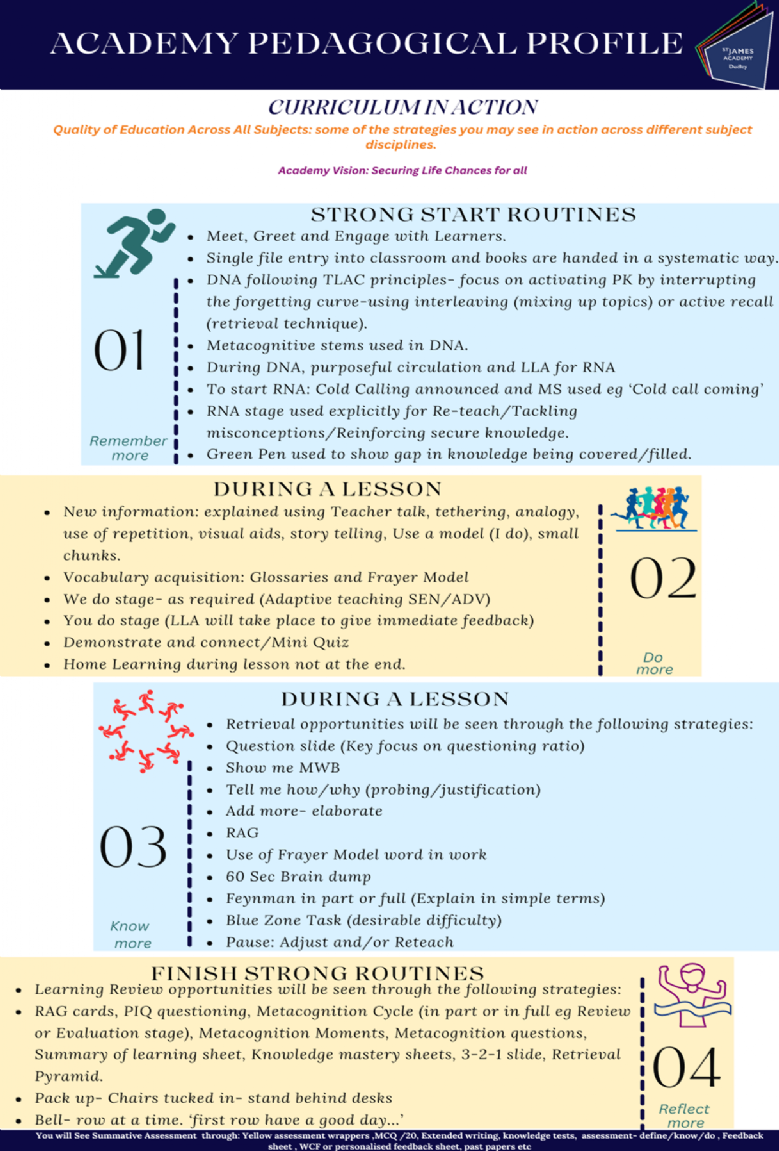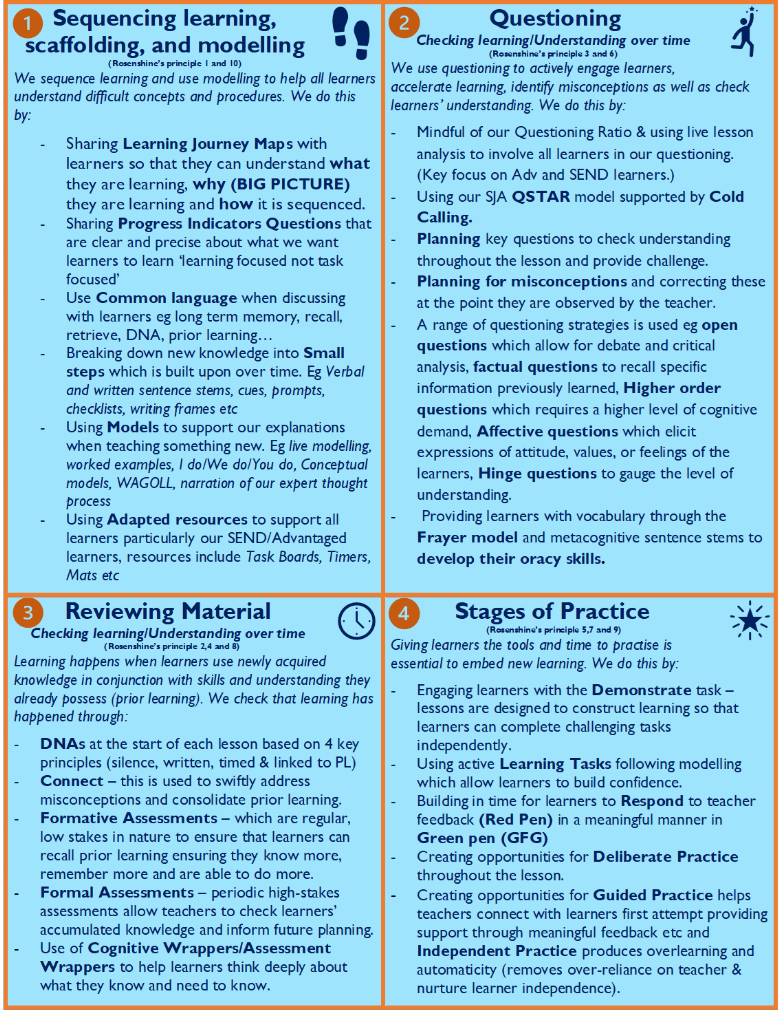Teaching & Learning
 |
Our learning principles are the basis of all learning in our Academy. Our principles are founded on the belief that every learner, regardless of background or educational need, should experience high academic challenge. Our learning principles are deeply rooted in research based on Rosenhine and Sherrington’s Principles of Instruction. Our 4 principles echo the Academy’s vision, key pillars and the core elements of learning which make up a good QoE: Building on: Prior learning, Knowledge acquisition, Assessment, Cultural capital exposure and cross disciplinary links. |
We are exceptionally proud of the good work that has gone into developing our ‘SJA Pedagogical’ approach. In order to achieve consistently high-quality teaching, we have put in place a clear framework and a shared language to ensure that all elements of teaching and learning are understood and applied with consistency. This framework and shared language is rooted in evidence - based research; recommendations from Ofsted and best practice. It is a structure to support staff in planning for the best learning opportunities for our learners. It is applied with the understanding that ‘good structure liberates’. Our team of teachers are constantly working towards making teaching practice the best it should be for all learners. Learning remains the goal of all successful teaching at SJA, therefore, it is essential that we understand what learning is and, more importantly, how we know it has happened. Therefore, we are clear that: Learning = A change in long-term memory.
‘If nothing has changed, nothing has been learned’
Kirschner, Sweller & Clark
| Teaching & Learning Framework We have established whole school principles based on Rosenshine and Teach Like A Champion. This forms a common language for our pedagogy. Our chosen framework exemplifies key elements which we believe fits our context and provides support for our advantaged learners (PP) and learners with SEN. Barak Rosenshine’s work emerged from research in cognitive science on how the brain acquires new information and research into effective classroom practice. Rosenshine summarised his findings in ten key principles which link to Sweller’s cognitive load theory and Piaget’s schema theory. These 10 principles have been adapted by Tom Sherrington into 4 key principles. We use Sweller’s cognitive load theory, Piaget’s schema theory and Rosenshine’s principles to inform teaching and learning in our school. This informs our thinking in many areas. |
 |
What is effective teaching?
Professor Robert Coe in ‘What Makes Great Teaching’ (2014) and ‘The Great Teaching Toolkit’ (2020) presents evidence of the four factors that have the biggest impact on learner outcomes:
1. Pedagogical content knowledge – the most effective teachers have deep knowledge of the subject they teach and understand the way students think about the content and identify their misconceptions.
2. Quality of instruction – introduce new learning, effective questioning, reviewing previous learning, modelling, practice time, effective assessment and feedback.
3. Classroom climate – interactions between teachers and students, teacher expectations, improving pupil effort and resilience.
4. Classroom management – efficient use of lesson time and classroom resources and management of behaviour consistently.
Our Research

A key part of the vision around teaching and learning is to limit variance in teaching across the school and strive to ensure that consistently high-quality teaching is available to every single learner. Therefore, our pedagogical approach is carefully outlined for clarity.
Our Curriculum is implemented through the teaching and learning framework as outlined in the Academy Pedagogical Profile. This is further broken down into subject areas in order to ensure consistency and a high-quality teaching and learning diet for learners.

Our Teaching and Learning Principles:

 |
At SJA, we believe:
|